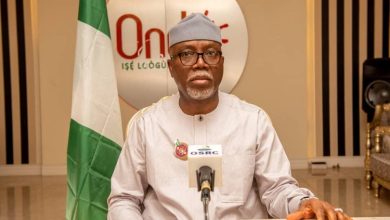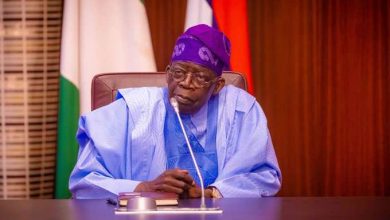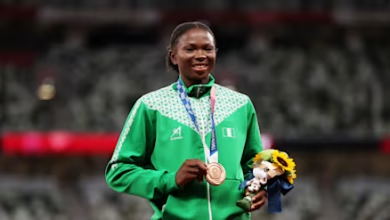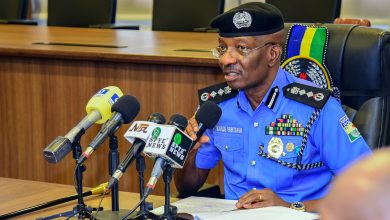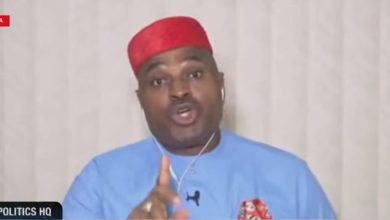Identity Construction: Ohanaeze Ndigbo, Ikwerre People – Jideofor Adibe
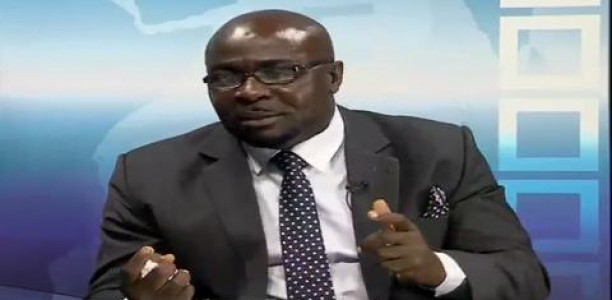
The assertion made by Ogbakor Ikwerre Cultural Organization Worldwide that it is the only custodian of the Ikwerre people’s aspirations regarding their choice of ethnic identity would be called into question by the fact that three Ikwerre sons ran active campaigns for the position of president-general of Ohanaeze. The reality is that these discussions are rarely resolved definitively and frequently change depending on the current situation of the ethnic group under discussion.
Three Ikwerre sons have emerged, each claiming to be the new president-general of the apex Igbo sociocultural group, following the Ohanaeze Ndigbo’s presidency being zoning to the Igbo-speaking people of Rivers State. This has led to some very intriguing questions regarding identity construction. As you may remember, at various conventions, Jackson Omenazu, Uche Okwukwu, and Senator Azuta Mbata—three sons of Ikwerre—claimed to have been chosen president-general of the association. Etche, Ekpeye, Ogba, Egbema, Ndoni, Ndoki, Asa, Bonny, and Opobo are among the Igbo-speaking communities in Rivers State, in addition to the main group, Ikwerre.
Numerous distinguished Nigerians, including former Vice President Atiku Abubakar, Governor Peter Mbah of Enugu State, senators from the South-East, Northern Christian Youth Professionals, and Governor Siminalayi Fubara of Rivers State’s chief of staff, Dr. Ehie Edison, have congratulated Senator Azuta Mbata, who was declared elected at a convention held at the Old Government Lodge in Enugu on January 10. This gives him an extra layer of legitimacy. A swift reaction, however, led to his disavowal by the Ogbakor Ikwerre Cultural Organization Worldwide, which asserts that it speaks for the Ikwerre ethnic identity globally. He voluntarily and voluntarily gave up his identity as an Ikwerre man by agreeing to serve as president of Ohanaeze Ndigbo, which the group acknowledged was his constitutional prerogative. Additionally, they contended that Senator Azuta Mbata’s Igbo identity “does not represent the collective view, will, position, or thinking of the Eneka community, Apara Kingdom, or the entire Ikwerre Ethnic Nationality.”
The Igbo agenda of territorial ambitions has been suggested to have played a role in Ohanaeze Ndigbo’s decision to zone its presidency to the Igbos of Rivers State. Such recommendations, in my opinion, are the result of either ignorance or malice. The truth is that, like people in many other sections of the country, South-East Igbos are also having discussions about who they are. In addition to discussing whether they should establish their identity in Nigeria as it currently exists or in a different nation, they also discuss how to interact with their “cousins” outside of the South-East who speak the same or a related language.
Some, for example, contend that Ohanaeze Ndigbo should only be used by Igbos in the South-East, in part to prevent accusations of fostering territorial aspirations or pursuing individuals who do not choose to identify with them, even though they speak the same or a related language. But some people think that restricting Ohanaeze’s leadership to the Igbos of the South-East would be unfair to their “cousins” in Delta and Rivers states, who are proud of their Igbo heritage and wish to be recognized as such. Since the latter side, in my opinion, prevailed in the debate, Ambassador Ralph Uwechue of Ogwashiuku became the organization’s president-general in 2008 and the Ohanaeze Presidency was assigned to Delta State.
The fact that some regions of the South-East trace their origins or mythologies outside of Igboland and occasionally may not wish to be referred to as Igbos should be kept in mind. “Nwa Onye Igbo,” which translates to “son or daughter of an Igbo person,” is how the residents of Onitsha, Anambra State, would refer to non-Onitsha Igbos. One of the drawbacks of using origin myths to create one’s ethnic identity is that the ethnic group that another group wishes to claim as its own (usually one with some historical prestige) would have its own myth about its migration. Therefore, it’s not really a huge concern that certain Ikwerre people don’t want to be called Igbo.
Naturally, some Igbo “cousins” outside of the South-East may be reluctant to tying their ethnic identity to the Igbo for other reasons, such as a sincere belief that they share no ancestry with the Igbo and that their language is merely a historical coincidence. On the other hand, Igbo “cousins” who wish to tie their ethnic identification to their Igboness may have unique beliefs, such as the possible advantages of belonging to one of the nation’s major ethnic groupings.
Similarly, among Delta’s Igbo-speaking population, some would choose to identify as Igbos while others would prefer not to. For example, debates and discussions on whether it is better for Benue and Plateau states to establish their own identity as the Middle Belt or to anchor their identity in Northern Nigeria are common. The same is true in Yorubaland, where Yoruba nation activists say that even if Bola Tinubu, the president, is a Yoruba guy, they would prefer an Oduduwa Republic.
This is not just a Nigerian trend. As part of the efforts by the country’s leadership to change Somalis’ perception of themselves as Africans to Arabs, Somalia joined the Arab League on February 14, 1974, just 14 years after gaining independence. Prior to colonization, there was no awareness of being Igbo, Yoruba, or Hausa/Fulani. This should be emphasized. Therefore, ethnicity as an identity marker is a relatively new phenomenon, having emerged in colonial metropolitan centers.
The assertion made by Ogbakor Ikwerre Cultural Organization Worldwide that it is the only custodian of the Ikwerre people’s aspirations regarding their choice of ethnic identity would be called into question by the fact that three Ikwerre sons ran active campaigns for the position of president-general of Ohanaeze. The reality is that these discussions are rarely resolved definitively and frequently change depending on the current situation of the ethnic group under discussion.
Some Italians and Irish, for example, hid their racial and ethnic identities during a period of discrimination in the United States, but as Italy and Ireland achieved economic success, they started to publicly display them. Given the current Igbophobic atmosphere, some of our Igbo “cousins” might be afraid that tying their ethnic identification to Igbo could ruin their careers. This is referred to as the “bloaching complex” elsewhere; it involves hiding or denying your ethnic or linguistic identity in order to prevent it from impeding your professional advancement.
Naturally, some Igbo “cousins” outside of the South-East may be reluctant to tying their ethnic identity to the Igbo for other reasons, such as a sincere belief that they share no ancestry with the Igbo and that their language is merely a historical coincidence. In contrast, Igbo “cousins” who wish to tie their ethnic identity to their Igboness may have their own beliefs, such as the advantages of belonging to one of the nation’s dominant ethnic groups, rather than concentrating solely on the situation of the Igbos in the nation.
Many significant questions are brought up by the commotion around the appointment of an Ikwerre as Ohanaeze’s president-general from the standpoint of identity: Ikwerres: Who Are They? Who are they supposed to be? To whom do they aspire? Why?
The Ogbakor Ikwerre Cultural Organization Worldwide’s harsh treatment of Senator Azuta Mbata, which included a literary excommunication from the Ikwerre community and the revocation of any chieftaincy title bestowed upon him by any Ikwerre community, is understandable. Is the organization truly able to control any Ikwerre individual in this way? That is highly unlikely.
Read Also: 2027 Countdown: Tinubu Gains Ground as Opposition Parties Crumble
Who is an African? is an edited book about identity that I published in 2009 and it garnered great reviews. The formation of the African country, citizenship, and identity. The late Professor Ali Mazrui, Professor Kwesi Prah, Professor Mammo Muchie, and Gamal Nkrumah, the late Kwame Nkrumah’s son, were among the numerous well-known Africanists who contributed to the book. Here is how I presented the book:
Who is an African? The answer appears to be clear on the surface. It would appear that everyone is aware of the African’s identity. However, when further inquisitive qualifiers are included in the query, the answer becomes less clear. Given that individuals of African descent inhabit both inside and outside of the continent, how is the African identity created? Do those who are classified as African or as having an African ancestry consider themselves to be African? Is it OK for someone to identify as African? Are some people more or less African, and are there gradients of “Africanness”? In what ways does African identity interact with other tiers of citizenship and identity in Africa? In addition, how does the controversial nature of African citizenship and identity affect pan-Africanist initiatives, the formation of the African nation, and the continent’s growth paths?
According to the foregoing, we should keep in mind the following aspects of identity construction: 1. Each person or group represents a variety of identities rather than a single identity. People may belong to various ethnic and religious groups, but they may also have a number of other identities in common, such as both genders, professions, sports teams, political parties, etc. Basically, if someone feels strongly enough rooted in both identities, they can be both Igbo and Ikwerre.
Two, the identities that are most vocally protected are frequently those that are seen as being under danger. Despite the fact that we all have several identities, if your identity as an Igbo, Yoruba, Ikwerre, Christian, Muslim, scholar, and so forth is thought to be under danger, your other identities will be buried as you protect the identity that is endangered. When a White person refers to a Black person as a “Black Monkey,” for example, many Black people worldwide may react strongly, if not violently. However, the White people may not react similarly to a White person who is referred to as a “White monkey.”
The Ogbakor Ikwerre Cultural Organization Worldwide’s decision to harshly condemn Senator Azuta Mbata, including literally expelling him from the Ikwerre community and voiding any chieftaincy title bestowed upon him by any Ikwerre community, makes sense in light of this. Is the organization truly able to control any Ikwerre individual in this way? That is highly unlikely. Even though Senator Azuta Mbata was elected president general of Ohanaeze Ndigbo, the debate over where the Ikwerres should base their ethnic identity is still up for debate. This is perhaps why the Ogbakor Ikwerre Cultural Organization Worldwide has taken a tough stance.
Third, identities are spatially and temporally oriented. The Igbos and Ikwerres both identified as belonging to the Eastern area before Gowon established the 12 states in 1967. Similarly, the Ikwerres would probably feel more kinship with the Igbos of the South-East than with other groups in the imagined country if they were placed in a far-off place with people of various racial and ethnic backgrounds, just because of their shared (or comparable) language and culture.

